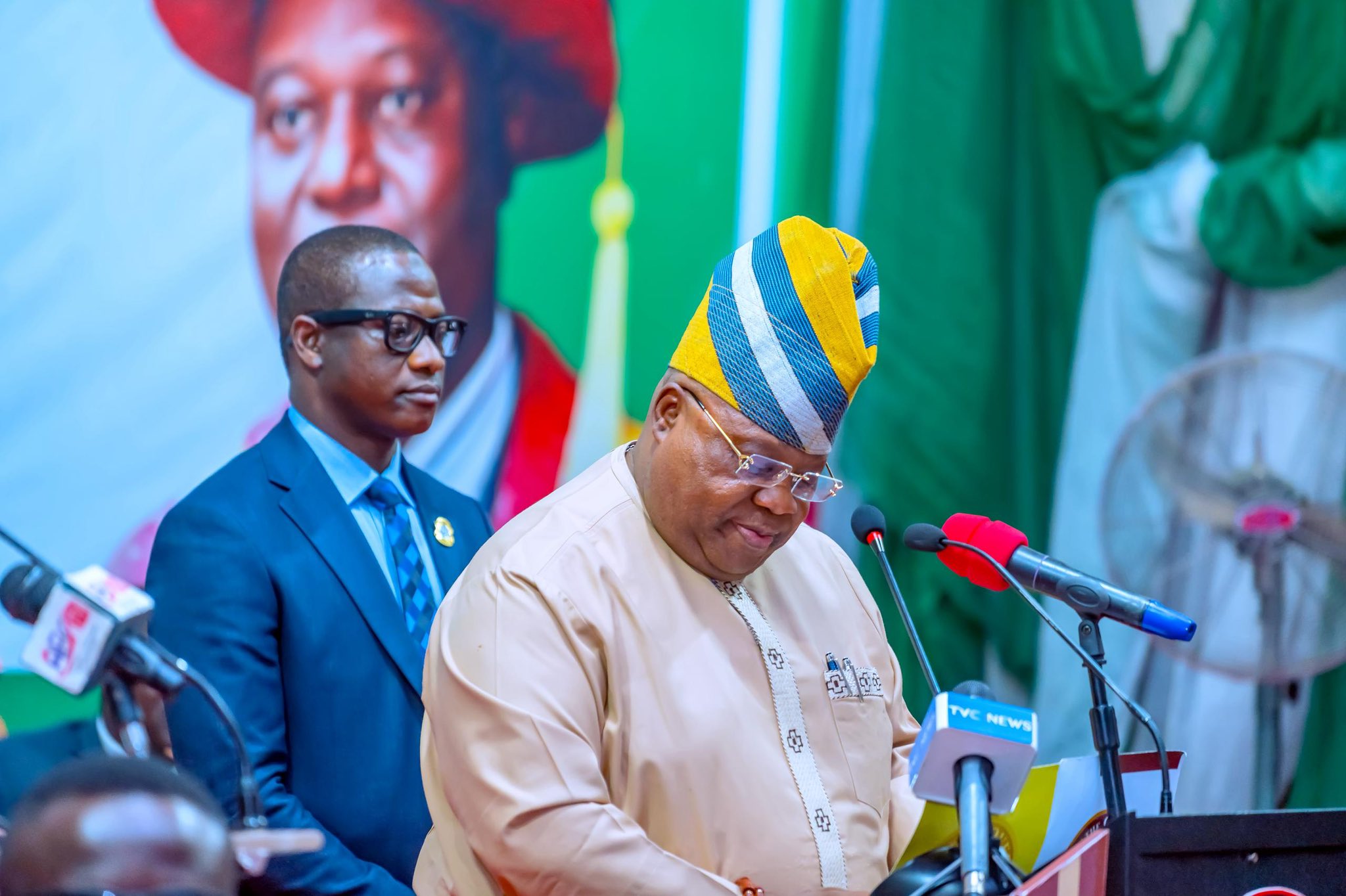Defections, endorsements, and Tinubu's 2027 ambition | TheCable
Nigerians need no prophet, Imam, or soothsayer to sound the alarm that President Bola Ahmed Tinubu is no longer just managing the affairs of the country, and that he is actively building momentum for a second term. From sweeping endorsements by top politicians to the steady stream of defections from opposition parties into the ruling All Progressives Congress (APC), it is becoming increasingly clear that Tinubu is positioning himself for another shot at the presidency. And if recent developments are anything to go by, he is not walking alone.
On 22 May 2025, the APC held a national summit in Abuja where Nigerians witnessed the official launch of Tinubu’s 2027 re-election bid. The motion to adopt him as the party’s sole candidate was moved by Imo state governor Hope Uzodimma and seconded by Kaduna state governor Uba Sani. This was followed by the national assembly’s endorsement, with Senate President Godswill Akpabio moving the motion and speaker of the house of representatives, Tajudeen Abbas, seconding it. These endorsements were subsequently ratified by the party’s national working committee, chaired at the time by Abdullahi Ganduje, who declared: “As the only body who has the power to field any candidate, I hereby affirm the various endorsements and declare President Tinubu as the sole presidential candidate of APC.”
The event of that day was not just a casual nod. For the party leadership and members, the unanimous endorsement was a reward for what they view as significant achievements halfway into Tinubu’s first term. For the avoidance of doubt, the achievements include the president’s ‘tough but necessary’ decision—like he usually says—to remove fuel subsidy, the unification of exchange rates, the implementation of a new minimum wage, and the new tax laws.
Despite the barrage of criticisms against the administration for the economic hardship many Nigerians are still experiencing due to the administration’s policies, Tinubu’s inner circle remains convinced he is the best man to pilot the affairs of the state. They are leaving no stone unturned to ensure his re-election “fairly, decisively and strategically” (in Ganduje’s words). Whether this is really about President Tinubu’s achievements or a political tactic to keep the weakened opposition, especially the People’s Democratic Party (PDP), out of power is unclear. What is certain, however, is that the groundwork for Tinubu’s re-election is in motion.
As Ganduje revealed: “The APC is deploying early engagement strategies by strengthening state chapters, training polling unit agents and legal teams, as well as mobilising youths and women at the grassroots…. They are a reflection of our national momentum and a rehearsal for total victory in 2027.” The results of these “early engagement strategies” are becoming manifest and so glaring with the tsunami of defections from opposition parties to the ruling APC.
In recent weeks, governors, lawmakers, and even once-vocal critics from the PDP and Labour Party have crossed over to the APC. Among them are big names like Akwa Ibom governor Umo Eno, Delta governor Sheriff Oborevwori, and even former PDP vice-presidential candidate Ifeanyi Okowa. At the national assembly, it is the same story. Over a dozen lawmakers from various states have followed suit. It seems the APC is not just getting stronger from within, it is swallowing its rivals too.
To the APC, these defections are a validation of their governance and an affirmation of public confidence in Tinubu’s leadership. President Tinubu himself has openly welcomed the defectors, saying, “you don’t blame people for bailing out of a sinking ship.” Given the spate of defections, the APC currently controls 23 out of 36 states, holds the presidency, and commands a comfortable majority in the national assembly. If the opposition keeps haemorrhaging members at this pace, they might have little chance of unseating the ruling party in 2027.
Nonetheless, the opposition is not silent. A counterforce, led by former Kaduna governor Nasir el-Rufai, perennial presidential contender Atiku Abubakar, and former Rivers state governor Rotimi Amaechi, is quietly forming. Describing Tinubu’s administration as one defined by deepening poverty, rising insecurity, economic stagnation, and institutional decay, the trio are determined to “rescue Nigeria from systemic collapse.” There is interest from others with a similar goal, as the Independent National Electoral Commission has revealed that it has received applications from 110 new political parties seeking registration ahead of 2027.
This brewing political contest and national discontent with the Tinubu administration have set the stage for a historic electoral showdown, one that will determine whether he shall retain or lose his seat. Since Nigeria’s return to democracy in 1999, only one sitting president (Goodluck Jonathan) has failed to secure re-election.
Interestingly, the ghosts of 2015 hover over the Tinubu presidency and if the growing discontent translates to votes, 2027 could mark the second time an incumbent president is voted out of office. Yet, while the opposition is strategising to mount a formidable challenge, the ruling party’s entrenched stronghold and influence over the institutions critical to the democratic process, namely the security agencies, the judiciary, and the electoral commission, may give the incumbent an edge.
So, whether it is by endorsements, party defections, or political realignments, one thing is clear: President Tinubu’s 2027 journey has begun. And for now, the tide is with him. But as we know, in politics, tides can change, and they change fast. With this in mind, let us watch what happens between now and 2027, particularly in 2027.
Ezinwanne writes via [email protected].
Views expressed by contributors are strictly personal and not of TheCable.








